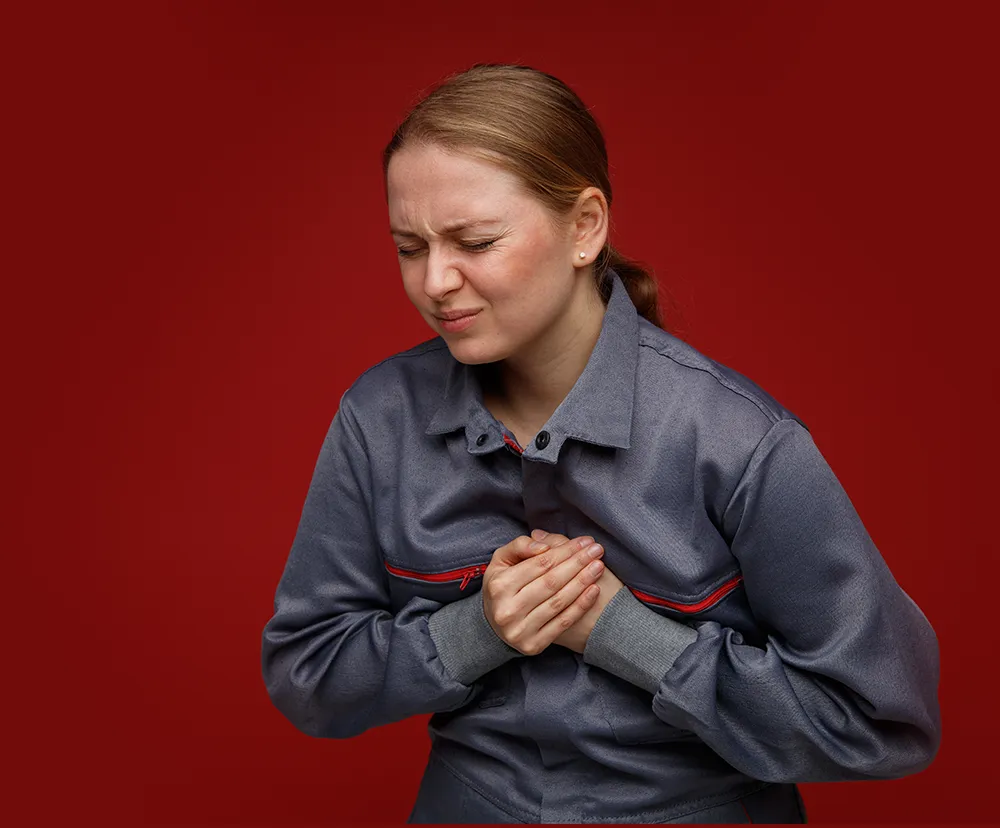How To Avoid Heart Attack Through Preventive Health Options?
How To Avoid Heart Attack Through Preventive Health Options?
- What causes heart attack?
- Avoid heart attack by learning if you are predisposed and at higher risk of an attack
- Will preventive methods help avoid heart attack?
- What is the procedure for genetic testing for risk of heart attack?
- Compelling advantages that make genetic testing a great and revolutionary option
- What are the symptoms of atherosclerosis?
- Polygenic risk score through genetic testing helps understand future risk of heart attack
Introduction
India witnessed a 12.5% increase in fatal heart attacks, as per government records. Unknown to a lot of people, studies indicate that South Indians have a higher risk of coronary artery disease than North Indians[1]. Advances in medical science now make it possible to identify risk of heart attack with a small sample of blood or saliva. Learn how to avoid heart attack through simple preventive health options that can now help reduce your risk of an attack.
What causes heart attack?
Before you look at preventive health and how to avoid heart attack, here’s a quick summary about the reasons for heart attacks. Medically known as a myocardial infarction, heart attacks are mainly due to a blockage in the arteries that take oxygen-rich blood to the heart. As a result of these blockages that either reduce or fully cut off supply, the heart undergoes damage.
Reasons for blockage are typically due to buildup of fatty deposits on the walls of the arteries. Known as atherosclerosis, this is a progressive condition, that slowly builds up over time. Eventually, the plaque may rupture, forming blood clots that can block the artery if large enough, causing a heart attack.
If you have any of the following conditions, it may possibly contribute to atherosclerosis:
- High blood pressure levels.
- High cholesterol levels.
- Diabetes.
- Lifestyle – smoking, obesity, lack of exercise, stress.
- Inherited – history of heart disease in family.
- Age, gender.
Avoid heart attack by learning if you are predisposed and at higher risk of an attack
CAD, coronary heart disease is known as a “silent killer”, because the underlying condition often develops slowly. This occurs without noticeable symptoms, or the symptoms may be infrequent or mild, and if you have the condition, you are most likely to dismiss the symptoms. The whole concept of genetic testing is simple – you submit a sample, and learn if you are predisposed genetically to heart disease. Armed with this information, your specialist can help you with information on how to avoid heart attack.
The test involves analyzing millions of variants in DNA from the saliva sample through genotyping. Gene variants are identified along with the number of copies of gene variants. On the basis of these numbers, the risk of possible heart attack is calculated. For example, some gene variants are linked to cholesterol metabolism, blood clotting, function of the blood vessels, and inflammation.
This gives you a personalized risk assessment of possible heart attack. On the basis of this assessed risk, you can then follow the cardiologist’s recommendations for preventive measures and how to avoid heart attack. The question is – is this method effective? These genetic testing methods have been accepted as promising by authoritative sources, for example, the American Heart Association.
Will preventive methods help avoid heart attack?
Yes, preventive measures are proven as effective. Studies have clearly demonstrated the efficacy of preventive methods through lifestyle changes and medical intervention. Some of the common preventive methods include:
- Manage underlying conditions that contribute to risk of heart attack.
- Medications to manage high blood pressure, high cholesterol, diabetes.
- Medications like aspirin, antiplatelet drugs.
- Changes in lifestyle – smoking cessation, controlled diet, routine minimum physical activity.
- Periodic monitoring.
What is the procedure for genetic testing for risk of heart attack?
The procedure is simple and requires just a few minutes of time. You will be asked to provide a sample of saliva. A special saliva collection kit is used for collecting this sample. You will be asked to either spit into a tube, or the saliva is collected through a swab of the inside of your cheek.
The DNA is then extracted or isolated, following which it is analyzed through genotyping. After the results are interpreted, depending on the score, you will undergo follow-up treatment.
Compelling advantages that make genetic testing a great and revolutionary option
The nature of the disease makes it imperative to be aware of possible risks. The American Heart Association claims that 90% of cardiovascular conditions can be prevented through certain actions. However, before you learn how to avoid heart attack, it is important learn about the possible risks. Predictive genetic testing can also help you with info on how to avoid heart attack while sleeping.
Genetic testing for conditions can be considered as useful, when certain criteria are fulfilled. For instance, testing is meaningful, when preventive or treatment options are available. With heart attacks, there are clear preventive options that help to reduce the risk. This makes genetic testing suitable for detecting and helping prevent your risk of heart attacks.
What are the symptoms of atherosclerosis?
The symptoms of atherosclerosis help to understand the urgency of the need for treatment and help avoid heart attack. Common symptoms include the following:
- Angina – Pain in the chest or discomfort experienced like abnormal pressure, or a squeezing sensation. Any tightness of heaviness in the chest that spreads to the shoulders and arms is also a possible indication.
- PAD, acronym for peripheral artery diseases – Pain in the leg, weak or numb sensation could be an indication of PAD.
- Carotid artery disease – Any sudden weak or numb sensation in the face, limbs or one side of the body can indicate the condition. Individuals may find it difficult to speak clearly or comprehend.
- CAD, acronym for coronary artery disease – Pain or discomfort in the chest, difficulty breathing, overall weakness are some symptoms of CAD.
- Renal artery disease – Hypertension, or impaired functioning of the kidneys.
- Abdominal aortic aneurysm – Pain in the abdomen or back, feeling full even after small meals. Individuals are likely to feel a strange sensation in the abdomen like a pulsating feeling.
Polygenic risk score through genetic testing helps understand future risk of heart attack
The polygenic risk score (PRS), gives a clear risk score on predisposition to possible heart attack. Based on genetic variants determined through analysis of saliva sample, this identifies the probability of future risk of heart attack in individuals. To learn more about how to avoid heart attack, genetic testing, or seek clarifications from an expert, click here for a quick response.
Medically Reviewed by
Dr.Rajasekar Cardiologist
Dr. Rajasekar is a cardiologist in Chennai, with extensive experience in the field. He completed his MBBS from Madurai Kamaraj University, followed by an MD in General Medicine and a DM in Cardiology from The Tamil Nadu Dr. M.G.R. Medical University (TNMGRMU).
Related Blogs :

Why You Need To Start Understanding Cardiovascular Disease
Slide HeadingLorem ipsum dolor sit amet, consectetur adipiscing elit. Ut elit tellus, luctus nec ullamcorper mattis, pulvinar dapibus leo.Click Here Previous Next What is the main information...


Life Saving Tips on how to stop Heart Attack
Introduction How to stop a heart attack in 30 seconds? Why time is of utmost importance? How to stop heart attack if you see signs of it...

Doctor of Pharmacy (Pharm.D) from the University of Delhi Experience : Dr. Srinivasan is an experienced pharmacist with a Doctor of Pharmacy degree from the University of Delhi and over 12 years in the field. She has worked extensively in clinical and community pharmacy settings, focusing on patient care, medication management, and drug safety. Dr. Srinivasan also contributes to health and wellness publications and serves as a consultant for pharmaceutical companies and healthcare organizations. Her expertise spans clinical practice, pharmaceutical writing, and regulatory affairs.



